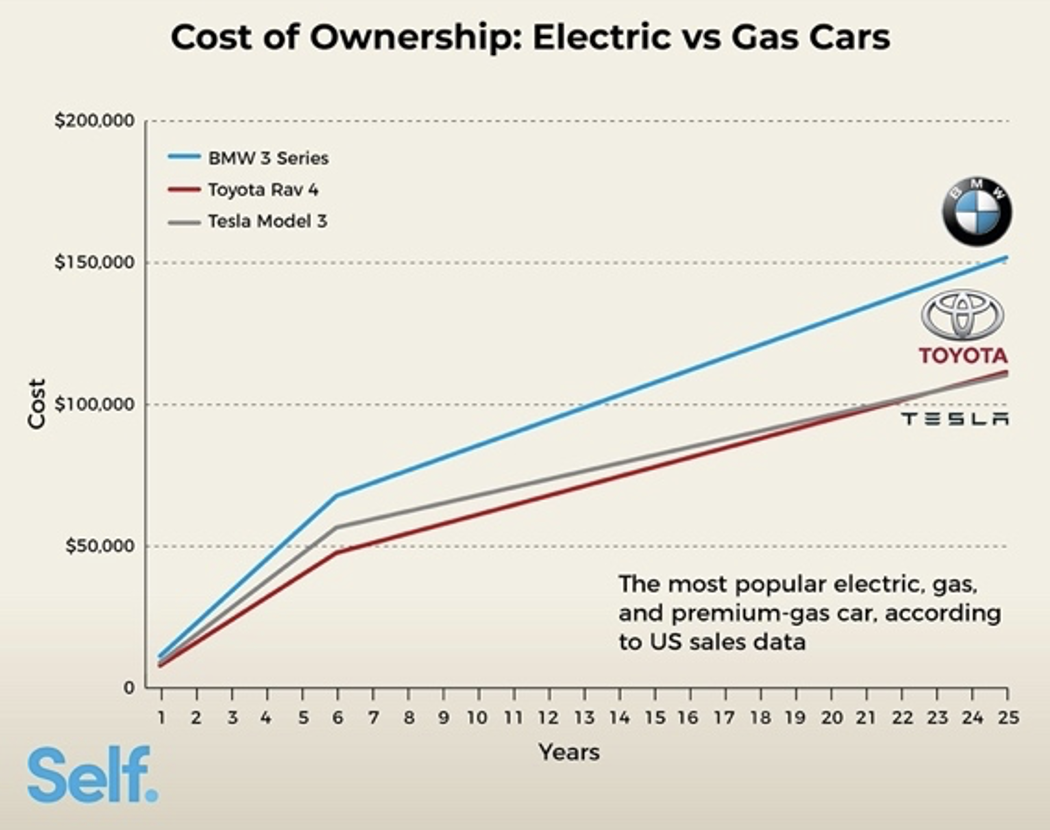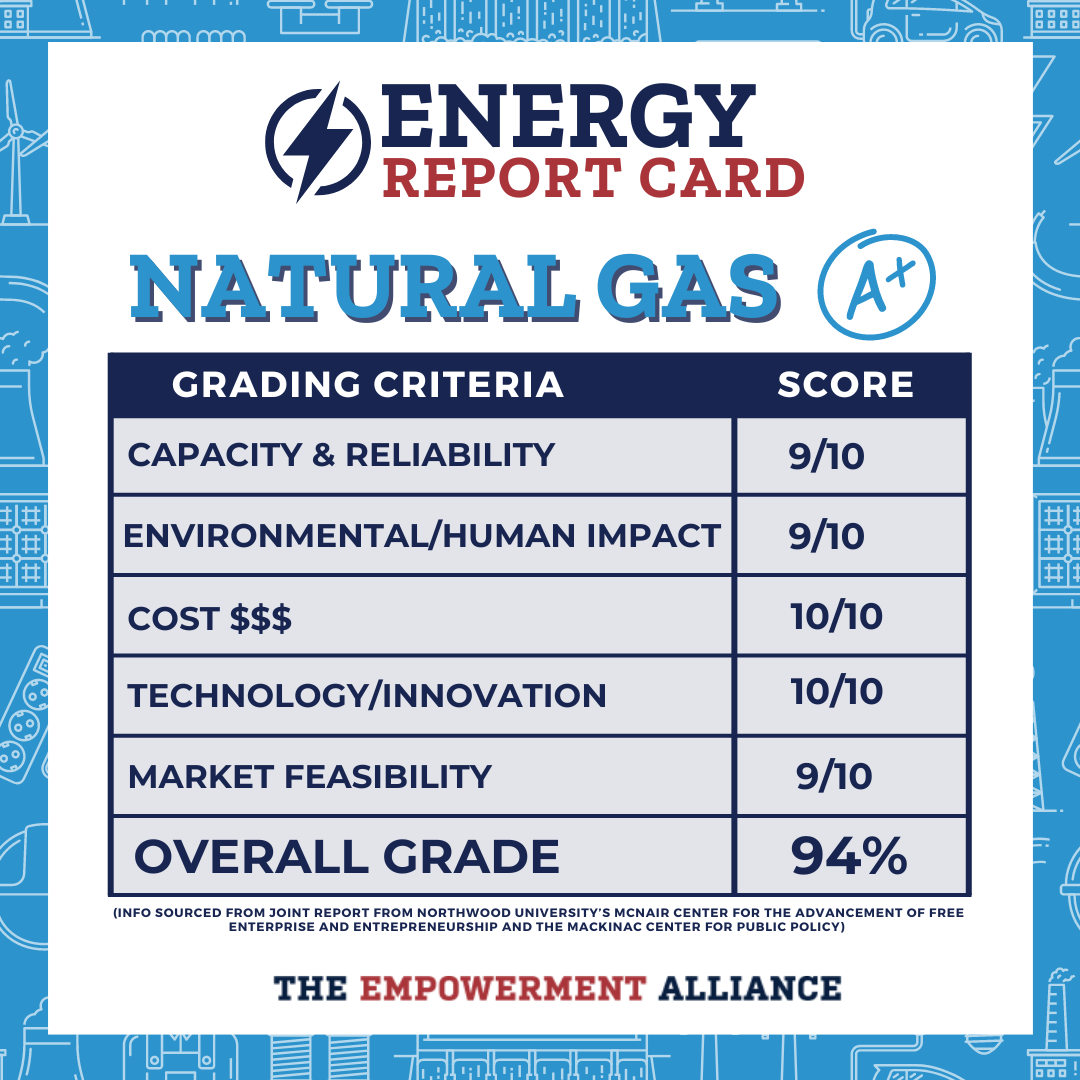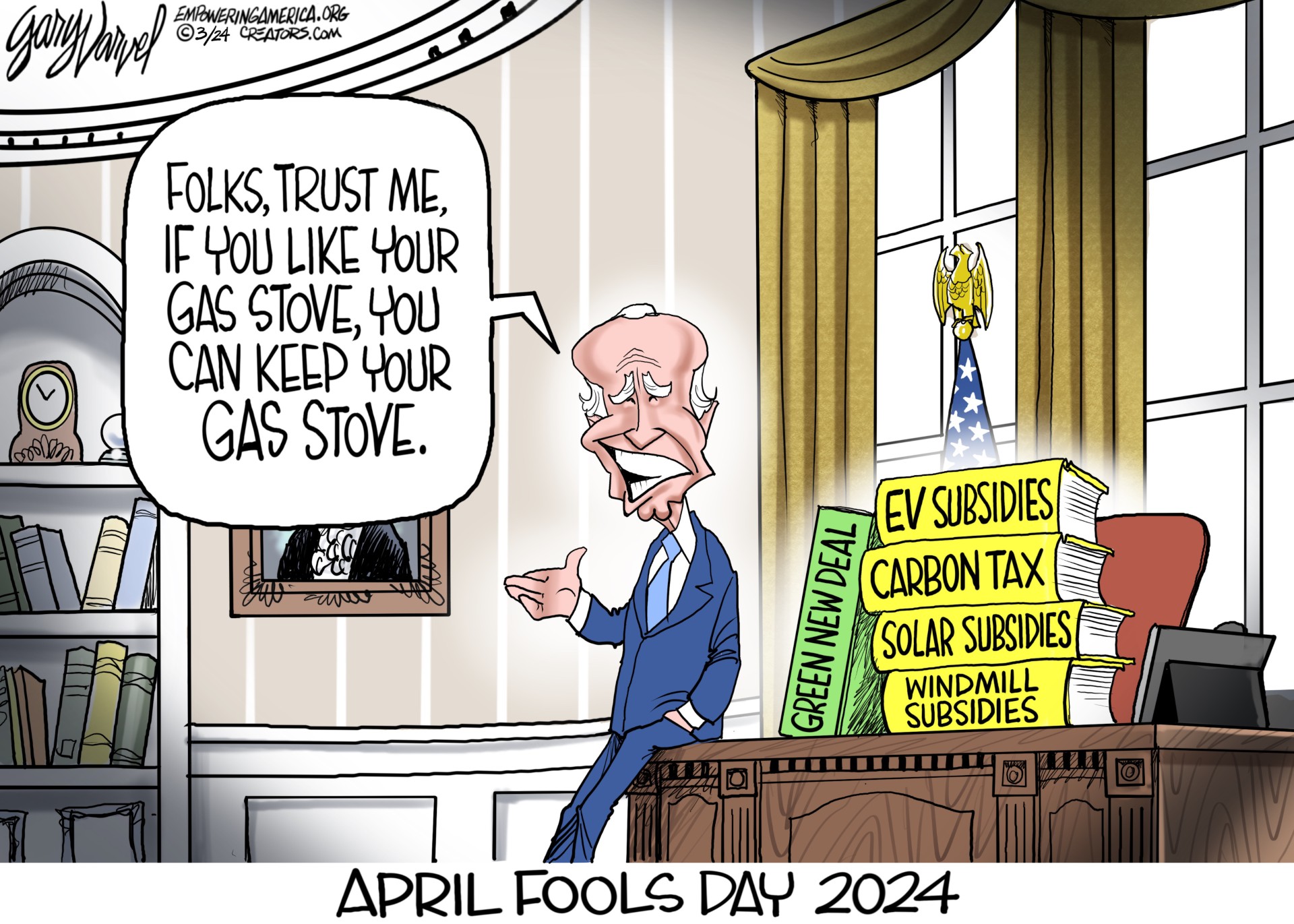Learn

AFTERNOON TEA
EVs aren’t the bees knees
President Biden recently gave a speech about how he was going to “lower gas prices at the pump for American families.” In between trying to pass blame on oil companies for a year of his bad policy decisions and draining the strategic petroleum reserve to try to counteract them, Biden also insists that electric vehicles are the answer to everything:
“But most important — the most important thing my plan will do right away is save your family money. And here’s what I mean: Under my plan, which is before Congress now, we can take advantage of the next generation of electric vehicles that a typical driver will save about $80 a month from not having to pay gas at the pump.”
$80 a month, huh? That’s the big savings for American families being crushed by “Biden-flation”? But, sarcasm aside, let’s break down the full picture of that so-called “savings.”
Purchase Price: Electric vehicles are simply more expensive than gasoline—the Kelley Blue Book average lists them over $56,000. That’s $14,000 more than the average full-size car, $22,000 over an average crossover SUV and more than double the cost of an average compact car. Given the average age of cars in America is 1 years, the reality is most people can’t afford a new car no matter type it is.
- Charging Costs: This is where the hidden complications really are. Sure, there is a cost-savings when you compare the electricity costs from charging to gas at the pump. But, charging is also inconvenient, unreliable and takes a tremendous amount of time. The charger you’ll get with your new electric vehicle that plugs into a regular household outlet can take as long as 40 hours to fully recharge your vehicle. If you need more reliability than that, you’ll have to shell out for a Level 2 charger—Tesla’s costs about $550. And, then you’ll need to hire an electrician to install it with a dedicated electrical circuit in your home, which could cost up to another $1,500. And, even after those extra $2,000 in added upfront costs, it’ll still take up to eight hours to get your vehicle fully charged. And, all that doesn’t mean much of anything for the tens of millions of Americans who rent or live in a situation where they don’t have any convenient access to charge their vehicles at home.
- Insurance: The average cost to insure an electric vehicle in the U.S. is $1,636. The average for a gasoline car is $1,218. So, it costs an average of $418 more a year to insure an electric vehicle.
- Taxes: Taxes on an electric vehicle cost an average of $282 more a year than a gasoline vehicle. Sure there are a ton of incentives and subsidies, but that’s not just free money. It just comes out of your pocket down the line in other higher taxes.
- Maintenance: So, electric vehicles do win in this category, but if you’re in an everyday American household and you’ve already shelled out all the additional costs above for your new electric vehicle, even the $200 or so in annual vehicle maintenance for an electric vehicle adds another pinch on your budget
And, after all those immediate, upfront costs, the long-term savings from electric versus gasoline vehicles is just not that significant. According to one study, “After 25 years, the ownership cost for the three vehicles is as follows: Tesla Model 3: $110,368, Toyota RAV 4: $111,464, BMW 3 Series: $151,880. This includes the purchase price of each vehicle which is split over the first 6 years.”
So, the fact is electric vehicle technology is still hugely inconvenient, unreliable, and costly for most Americans. Hours and hours of charging time is not something everyone can bend their lives around. Thousands of dollars in upfront costs, immediate increases in tax and insurance costs, on top of purchasing an already expensive vehicle is just not realistic for the majority of American families. The infrastructure necessary for a mass transition to electric vehicles simply isn’t there. And, if it was, the increased demand for electricity will inevitably start driving up costs for that source of energy too.
The ongoing electric vehicle push from the Biden Administration is just another slogan masquerading as policy—and, $80 savings isn’t even a great slogan. But more to the point, it’s insulting and out-of-touch for everyday Americans struggling with outrageous gasoline prices. This Administration needs to rejoin the rest of us in reality and provide real relief now—not just more stop gaps and marketing gimmicks.






